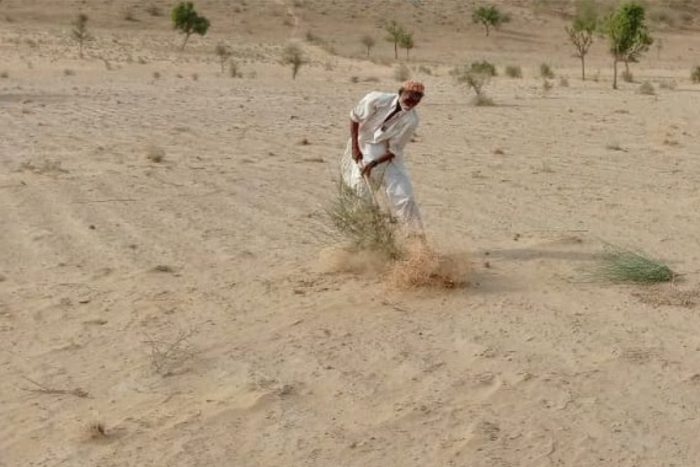Locust crisis amind a global pandemic: Learning from the infestations of 2020 in Sindh, Pakistan
In 2020, CWS Japan, in partnership with Community World Service Asia (CWSA) and with support from Japan Platform, responded to this compound disaster in the Sindh province of Pakistan in two phases. Τhis report looks at the issues and solutions through the CWS response and some in-depth interviews conducted in October 2021, and attempts to capture the lessons for future responses to similar disasters. The report also tries to capture learnings on managing compound disasters, which are becoming more and more common.
Knowledge on the ecology of desert locusts and the forecasting of swarms have developed considerably over time, but understanding the species and having the technology for the forecast is not enough. Without international policy and implementation cooperation, and, more importantly, without the timely communication of the forecast, outbreaks will continue to happen. It is also important to improve the early warning communication pathway between the central and the regional bodies. Through the CWS project, it was found that the forecasts were not properly communicated with the residents of the affected areas, even though there was adequate time. Αnother aspect that makes locust control difficult is the irregular and long intervals between the outbreaks. The knowledge and experience gained by one generation may not be passed on properly to the next because of the length of the intervals.







